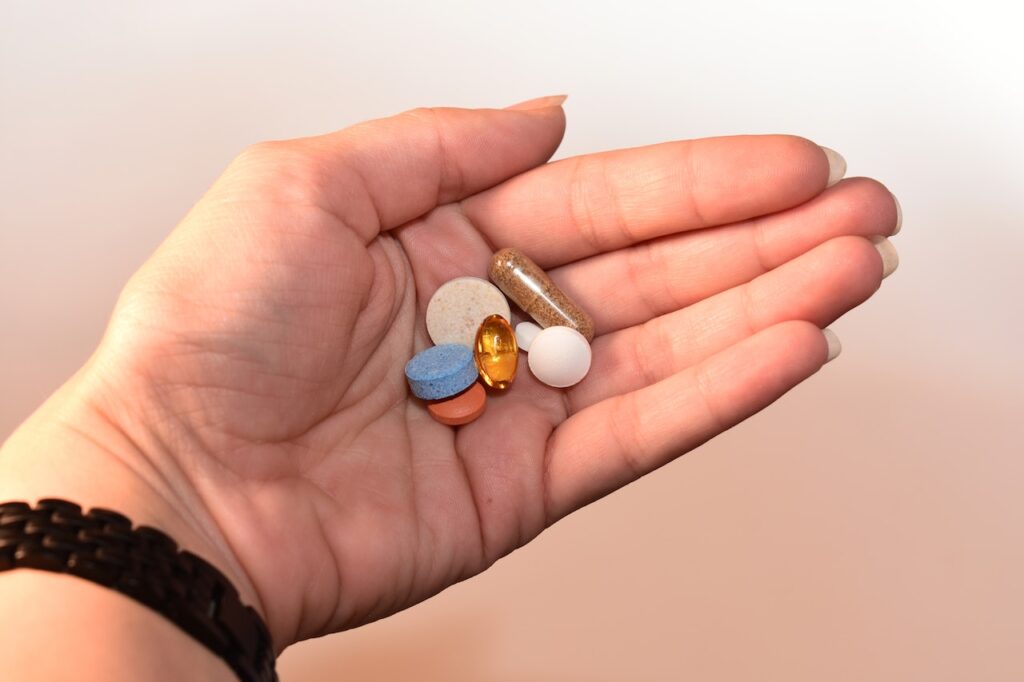Drug & Alcohol Rehab in Dagenham
When an individual develops an addiction, it can be an intensely difficult situation to be in. The physical and emotional consequences can be overwhelming, harming relationships and impairing an individual’s ability to work in the process.
Not only this, but those with substance abuse problems can also find it hard to get the help that they need.
Denial can play a huge role in preventing them from seeing the need for treatment, and even those who know that they need help can have a lot of doubts about the process.
At OK Rehab, we understand that this is a huge problem. The longer an addiction is left untreated, the worse it can become.
That’s why we want to help by shedding some light on the most common concerns regarding addiction and rehab.
For more information on Drug and Alcohol Rehab in Dagenham, contact us on 0800 326 5559.
Do You Need Drug and Alcohol Rehab?

Probably the biggest obstacle lying between an addicted individual and appropriate treatment is the question of whether rehab is needed in the first place.
While the use of drugs and alcohol does not necessarily mean that an individual is addicted to them, it is unfortunately common for those who abuse them to be in denial about that fact [1].
When this happens, individuals downplay how much they rely on drugs and alcohol, ignore advice and worries, and dismiss the need for treatment.
To determine whether addiction treatment is needed, individuals must attempt to view their behaviour objectively – or for a close friend or family member to do this for them – and check for some of the following traits:
- Being unable to stop using a substance
- Consuming a substance frequently and in excessive quantities
- Having tried to stop consumption and failed
- Experiencing withdrawal symptoms – such as shaking, headaches, and nausea – when a substance is not consumed
- Taking risks or being secretive to attain more of a substance
- Becoming obsessive about a substance
- Experiencing problems at work or school due to substance use
- Consuming more and more substance over time
If you find that some of these traits are present in your behaviour, or if you notice that they are present in that of a friend or loved one, it is essential that you seek support and begin the process of looking for appropriate addiction rehab.
Unfortunately, addictions do not become better by themselves. The cycles of substance use will only worsen, as will the effects on an individual’s mind and body. Rehab is the only way for such behaviour to be stopped.
For more information on Drug and Alcohol Rehab in Dagenham, contact us on 0800 326 5559.
What Does Rehab Involve?

Once an individual has made the important step of accepting that they need help, there can be a lot of following concerns. One of the most common pertains to what the process of rehab involves and what an individual will have to go through.
While approaches to addiction recovery can vary across different rehab programmes, the fundamental treatment methods involved tend to be consistent. These are detoxification, therapy, and aftercare.
1. Detoxification
When an individual develops an addiction, their body relies heavily on the consumption of a substance to function. It needs the substance as part of its chemical stability, and it experiences withdrawal symptoms when that dose is not provided.
As a result, rehab’s first treatment method is detoxification, which involves weaning the body from this dependence.
Through a gradual tapering off of consumption, the body can slowly adjust to receiving less and less of a substance until it can handle receiving none at all.
The objective of this method is to help an individual gain a sense of independence from their addiction, putting some space between them and their cravings so that they can try to work through the underlying causes of their behaviour.
2. Therapy
Following on from detoxification, rehab then uses different therapy techniques to try and facilitate an individual working through what is fuelling their addiction. Detoxification can relieve the initial physical demand for a substance, but this will not be enough to prevent addiction from returning in the long run.
For many who struggle with addiction, an underlying problem triggers them to abuse a substance.
This can be anything from childhood trauma to a long-term mental health condition, but therapy’s job is to confront this problem and stop it from causing an individual to relapse once they leave treatment.
Therapy might include one-on-one counselling, support groups, or Cognitive Behavioural Therapy (CBT) – all of which give individuals the opportunity to identify the underlying causes of their addiction, understand them a bit better, and develop healthier ways of handling them.
3. Aftercare
Once an individual has made sufficient progress on both the physical and psychological levels of their addiction, they will return to their everyday life. While this is a great achievement, the recovery work is not complete.
The risk of relapse is very high for newly sober individuals returning home as many tend to struggle with the pressures of work and family life without the around-the-clock support of rehab. To help with this, rehab programmes offer aftercare services.
These activities are designed to continue supporting an individual once they have left full-time treatment.
They can involve classes which help individuals develop routines and techniques to limit the impact of their cravings, or counselling sessions which give them chance to continue discussing their internal dilemmas and obstacles.
For more information on Drug and Alcohol Rehab in Dagenham, contact us on 0800 326 5559.
The Many Approaches to Treatment

While the treatment methods listed above are present in almost all drug and alcohol rehab programmes, how different facilities approach the process of treatment can vary.
The personalities and emphases of different programmes can take many different shapes and structures. These include:
- Step programmes – these kinds of programmes structure the recovery process as a series of steps through which individuals progress. These steps can be designed to fit an individual’s specific situation, allowing all to feel as though they are progressing and achieving milestones.
- Faith-based – including additional activities such as text readings and prayer sessions, such programmes appeal to an individual’s sense of religion and faith, giving them a purpose and motivation for continuing with treatment [2].
- Skills and development – as well as beating addiction, some programmes will work to improve an individual’s overall well-being and life, offering them classes to boost their employability and help them achieve a more stable lifestyle.
For more information on Drug and Alcohol Rehab in Dagenham, contact us on 0800 326 5559.
What Does Private Rehab Offer?

In addition to the popular concerns about what rehab involves, some individuals may worry about the benefits of luxury rehab. There are some programmes which, for a higher price, offer a lot of additional activities and facilities to occupants, but what do these include?
Private rehab programmes do not guarantee a greater chance of recovery than those provided by the NHS, however, they do offer services which can facilitate a more comfortable transition to a substance-free life. These can include:
- A serene and isolated location
- Private accommodation and a personal bathroom
- Freshly prepared food
- More access to treatment
- A wider variety of treatment methods
- Gyms, spas, and outdoor spaces
For more information on Drug and Alcohol Rehab in Dagenham, contact us on 0800 326 5559.
Getting Support From OK Rehab

If you are considering drug and alcohol rehab and need support, get in touch with us at OK Rehab. We can help.
It can be frightening to think about addiction treatment, and trying to find rehab in the Dagenham area can feel overwhelming. But when you contact us, we can help find the right programme for your situation and make sure that you feel confident about taking the next steps towards a healthier lifestyle.
Statutory-Funded Addiction Programmes Near Dagenham
Here are a few options near you.
1. Change Grow Live
Address: St Lukes Service, Dagenham Rd, Dagenham RM10 7UP
Telephone: 02085 951375
Website: https://www.changegrowlive.org/
2. WDP Subwize
Address: The Vibe, 195-211 Becontree Ave, Dagenham RM8 2UT
Telephone: 03003 034613
Website: http://www.wdp.org.uk/
3. Newham Drug and Alcohol Service
Address: 3 Beckton Rd, London E16
Website: https://www.newham.gov.uk/health-adult-social-care/drugs-alcohol
In addition to this, there are more helplines such as Mind UK, YoungMinds, Rethink Mental Illness, Samaritans, Papyrus and SMART Recovery that will also help with your recovery.
Alternatively, find an Alcoholics Anonymous, Narcotics Anonymous or Cocaine Anonymous near you. The NHS are also there to help you.
Get in touch with us today by calling 0800 326 5559.
We offer addiction support across London, in areas such as Barnes, Battersea, Bethnal Green, Beckenham, Camden Town, Chelsea, Clapham, Finchley, Fulham, Greenwich, Hampstead, Hanwell, Highgate, Kensington, Kingsbury, Lewisham, Marylebone, Mayfair, Notting Hill, Paddington, Shoreditch, Soho, Thamesmead, Tottenham, Walthamstow, West Ham, Westminster, Wimbledon and more.
References
[2] https://www.ncbi.nlm.nih.gov/pmc/articles/PMC6759672/





